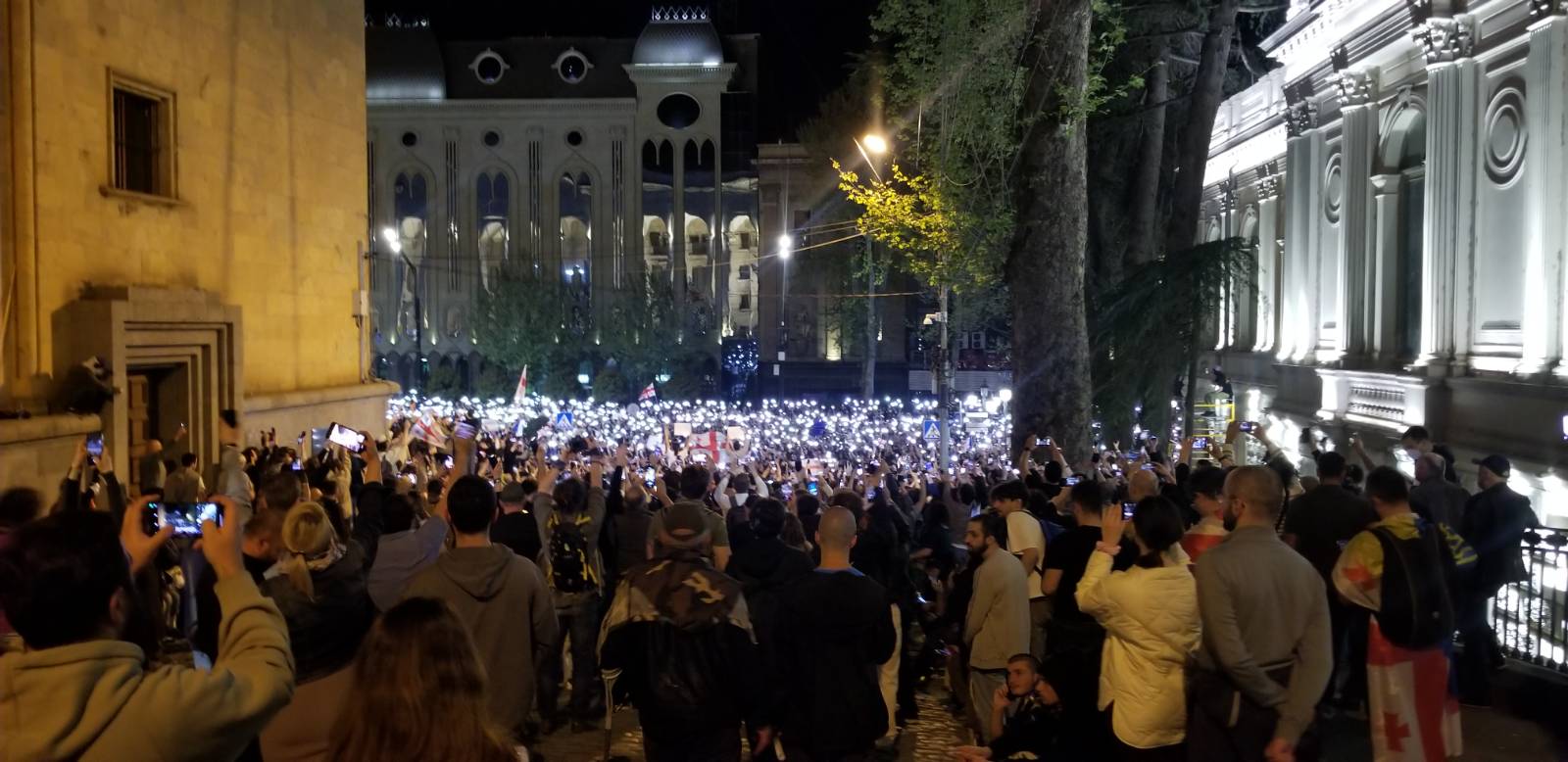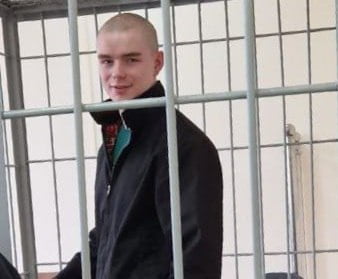On 9 May 2016, the “Day of Flowers” that commemorated the late Azerbaijani President Heydar Aliyev’s birthday, two anarchists celebrated the festivities and paid their respects to the dead dictator by decorating one of his statues. “Happy Day of Slaves,” they wrote on the pedestal, “Fuck this system!”
Bayram Mammadov and Giyas Ibrahimov were swiftly arrested and subjected to months of torture by their captors. When they finally came to trial, they were stunned to discover that the police were claiming to have seized 3kg of heroin from their apartments. Graffiti, after all, washes off rather easily with a good enough hose – this isn’t such a heinous crime to warrant an extended prison sentence. But drug trafficking, now that could keep these pesky anarchists away for longer.
Despite the lengthy 10-year prison sentence, the pair were released in March 2019, along with hundreds of other political prisoners, following an appeal by Amnesty International. A gesture of goodwill by the dictatorship, but only a gesture, for they were plotting something sinister to ensure their political enemies would not catch them by surprise again.
As the government of Azerbaijan smiled and opened the gates of their prisons, behind their backs they were setting up a wide-reaching surveillance regime to keep tabs on the newly released dissidents. For the government was a customer of an Israeli tech company called the NSO Group. They weren’t buying roombas, iPads or barely functioning Smart TVs, as the NSO Group didn’t sell technology that you or I could buy. This company sold only one thing: spyware. A piece of code known as Pegasus was their star product, allowing governments to hack into any phone they wanted through something as simple as a WhatsApp message. Once this code makes its way into a phone, it can then access and extract any data stored in it, and even covertly make use of its microphones and cameras.
Over the past few weeks, investigative journalists have managed to uncover a truly staggering amount of information about this spyware, the people it has targeted and the governments that have utilized it. The Pakistani prime minister Imran Khan and Indian opposition leader Rahul Gandhi were both targeted by a mysterious client in India. The South African president Cyril Ramaphosa and the Burundian prime minister Alain-Guillaume Bunyoni were both targeted by a mysterious client in Rwanda. The Moroccan King Mohamed VI and his prime minister Saadeddine Othmani were both apparently targeted by a mysterious client in their own country.
But the Azerbaijani government, whose list is possibly the longest that has been uncovered so far – standing at 245 – was not targeting any head of state or government. At least, none that we know of yet. The targets of the Azerbaijani government were overwhelmingly journalists, activists and opposition politicians, all people that presented a threat to the legitimacy of Ilham Aliyev’s dictatorship and his cronies in the governing New Azerbaijan Party.
Bayram Mammadov was one of those identified on the list, as was his father, and Giyas Ibrahimov’s mother – Shura Ibrahimova – who had dared to speak up for her son after he was arrested.
Ibrahimov himself made headlines last year, after he was detained for daring to criticize the Azerbaijani state’s genocidal prosecution of the Nagorno-Karabakh War. Mammadov, however, was not so lucky. After his release in 2019, he was swiftly detained again and held for a month for refusing to submit to his jailers’ orders. He continued to endure harassment, enough so that he fled Azerbaijan to the neighbouring country of Turkey. Here he began to make a life for himself, started to learn the English language and planned for his future, always keeping a return to his home country in mind.
These plans, tragically, would never come to fruition. Only two months ago, on 4 May, Bayram Mammadov was discovered dead in Istanbul – having drowned in the sea near Kadıköy. The Turkish police never bothered to investigate the cause of his death, but the media in Turkey and Azerbaijan were quick to report it as a suicide. His friends and family immediately disputed this, as he had plans to get a master’s degree and return to Azerbaijan with an improved education. He was so busy, in fact, that he had closed his social media accounts. But his phone was still in use – his phone that had been bugged for over a year.
The suspicious circumstances surrounding Mammadov’s death have still not been looked into. His appearance in the list of the Pegasus spyware’s many victims only raises further suspicion about what, exactly, the Azerbaijani government wanted from him.
Bayram Mammadov’s story is only one of hundreds, thousands, even millions. It is a story of the silencing of journalists for speaking and uncovering the truth. It is a story of the imprisonment, torture and murder of activists for standing up to a criminal dictatorial regime. It is a story of the continued genocide of marginalized people for not wanting to be ruled by a system that sees them as less than human.
The story of Bayram Mammadov is the story of a struggle against dictatorship, and it is one that is still left unfinished. These new revelations about the Pegasus spyware are only a handful of the countless unspeakable crimes perpetrated by the Aliyev regime. But make no mistake, it is a regime that will fall, and it will be by the hands of the very people it has kept under its thumb until now, when they finally let out the cry of those two anarchists on that fateful day of flowers: “Fuck this system!”
Image: Giyas Ibrahimov, via Avtonom.








